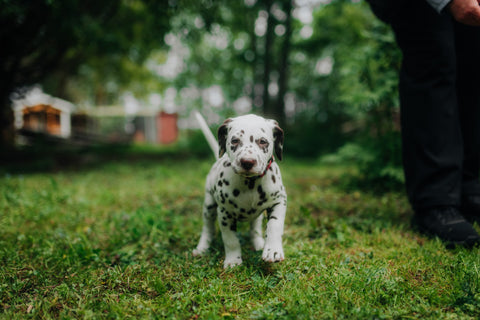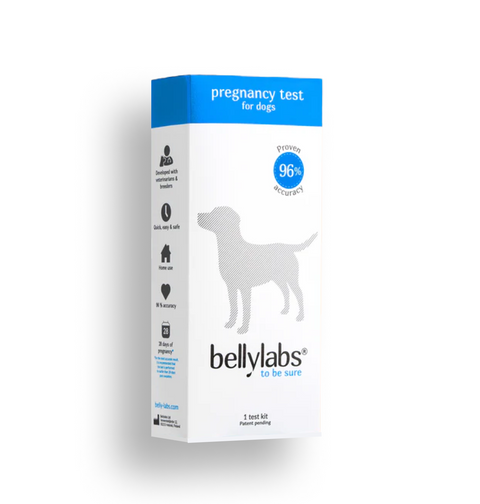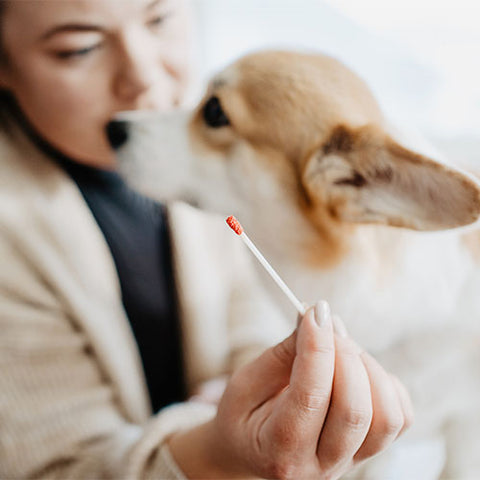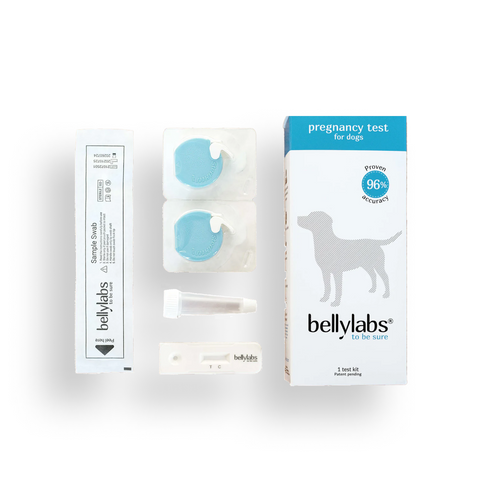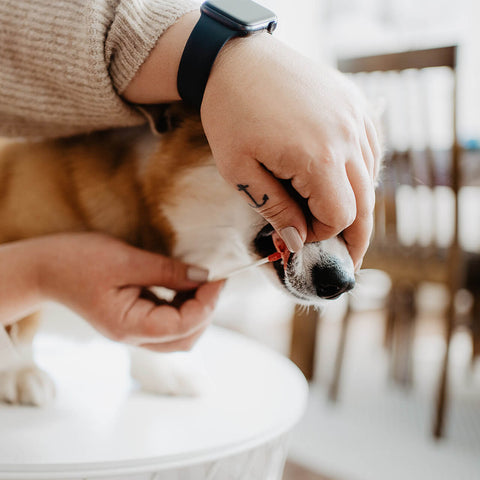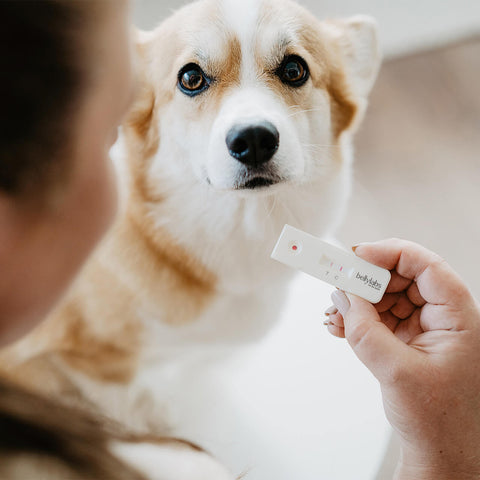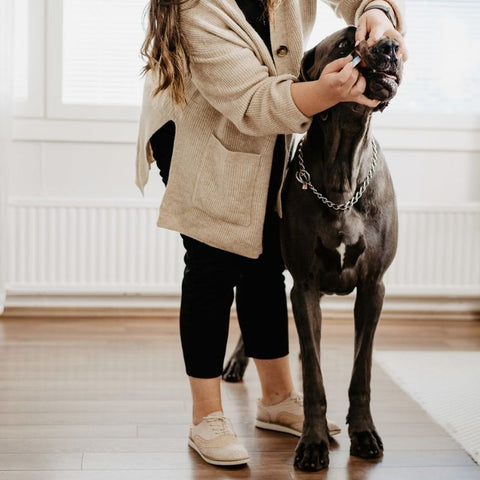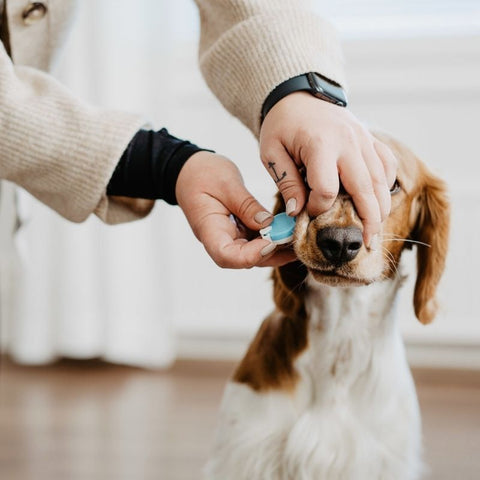Dogs, often referred to as "man's best friend," have been domesticated for thousands of years, serving various roles as companions, workers, and even show animals. For many dog owners, the prospect of their beloved pet having puppies can be an exciting and rewarding experience. However, when a dog fails to become pregnant despite repeated attempts, it can be a source of concern and frustration. In this article, we will delve into the scientific reasons behind canine infertility and explore the various factors that can prevent a dog from getting pregnant.
Understanding the Canine Reproductive Cycle
Before delving into the reasons why a dog may not get pregnant, it's essential to understand the canine reproductive cycle. The female dog, known as a bitch, goes through a regular estrous cycle, also called the heat cycle, which typically lasts about 21 days, although this varies greatly between females. During this cycle, her body undergoes various hormonal changes that prepare her for potential pregnancy.
Stages of the canine heat cycle:
- Proestrus:This is the first stage of the heat cycle and can last for about 5 to 9 days. During proestrus, the bitch experiences swelling of the vulva and a bloody discharge. However, she is not receptive to mating during this phase.
- Estrus: This is the fertile period of the heat cycle, lasting around 5 to 13 days. The bitch becomes more receptive to males and may display behavioral changes such as increased friendliness and flagging her tail to the side. This is when mating is most likely to result in pregnancy.
- Diestrus: Following estrus, the bitch enters the diestrus stage, which typically lasts 60 to 90 days. If she becomes pregnant, this is when gestation occurs. If not, the body undergoes a return to a non-pregnant state.
- Anestrus: Anestrus is a period of sexual inactivity and can last for several months. It's during this time that the bitch's body rests from the reproductive cycle.
Now, let's explore the various factors that can contribute to canine infertility.
- Age
Just like in humans, age plays a significant role in a dog's fertility. Younger dogs may not have fully developed reproductive systems, while older dogs may experience a decline in fertility. Female dogs typically reach sexual maturity between 6 and 12 months of age, but this can vary by breed. Male dogs can be fertile as early as 6 months old, but it is advisable to wait until they are closer to two years old before breeding to ensure they are physically and mentally mature.
- Health and Nutrition
A dog's overall health and nutritional status can have a substantial impact on their fertility. A dog that is malnourished or suffering from underlying health issues may struggle to conceive. Proper nutrition and regular veterinary care are essential to maintain a healthy reproductive system. Obesity can also affect fertility in both male and female dogs, so it's crucial to maintain a healthy body weight.
- Breeding Timing and Technique
Timing and technique are crucial factors in successful dog breeding. It's essential to ensure that mating occurs during the bitch's estrus phase, which is the fertile period of her heat cycle. Ovulation timing is usually the most effective tool to ensure your female dog will get pregnant. Progesterone testing can be done to track ovulation and to make sure ovulation has taken place.
- Reproductive Disorders
Various reproductive disorders can affect a dog's ability to become pregnant. These can include:
- Pyometra: This is a serious infection of the uterus that can occur in unspayed female dogs. It can lead to infertility and life-threatening complications.
- Prostate Problems: Male dogs can suffer from prostate issues, which may affect their ability to produce viable sperm.
- Testicular Disorders: Conditions that affect the testicles can impair sperm production and quality in male dogs.
- Ovarian Disorders: Problems with the ovaries can disrupt the estrous cycle and prevent successful pregnancy.
- Infections and Diseases
Infections and diseases can negatively impact a dog's reproductive system. Sexually transmitted diseases can be transmitted between dogs during mating and may cause infertility. Additionally, systemic illnesses, such as diabetes or autoimmune disorders, can indirectly affect reproductive health.
- Stress and Environmental Factors
Stress and environmental factors can influence a dog's reproductive health. Environmental stressors, such as extreme temperature fluctuations or exposure to toxins, can lead to infertility. Additionally, high levels of stress or anxiety in a dog can disrupt their hormonal balance and estrous cycle.
- Contraception
If a dog has been spayed or neutered, it is, by design, rendered incapable of reproduction. Spaying involves the removal of the ovaries and uterus in females, while neutering involves the removal of the testicles in males. These procedures are common forms of contraception and are performed for various reasons, including population control and preventing certain health issues.
Conclusion
Canine infertility is a complex issue with numerous potential causes, ranging from age and nutrition to reproductive disorders and genetics. Successful dog breeding requires a deep understanding of a dog's reproductive cycle, careful planning, and attention to various factors that can affect fertility.
If you suspect that your dog is experiencing infertility, it is essential to consult with a veterinarian who specializes in reproductive health. They can conduct thorough examinations, perform diagnostic tests, and provide guidance on how to address the specific issues affecting your dog's ability to conceive.
Remember that responsible breeding practices prioritize the health and well-being of both the bitch and the potential puppies. Breeding should not be undertaken lightly, and prospective breeders should educate themselves thoroughly on the process and its responsibilities. With proper care and attention to the factors mentioned in this article, you can increase the likelihood of a successful and healthy pregnancy for your dog.




